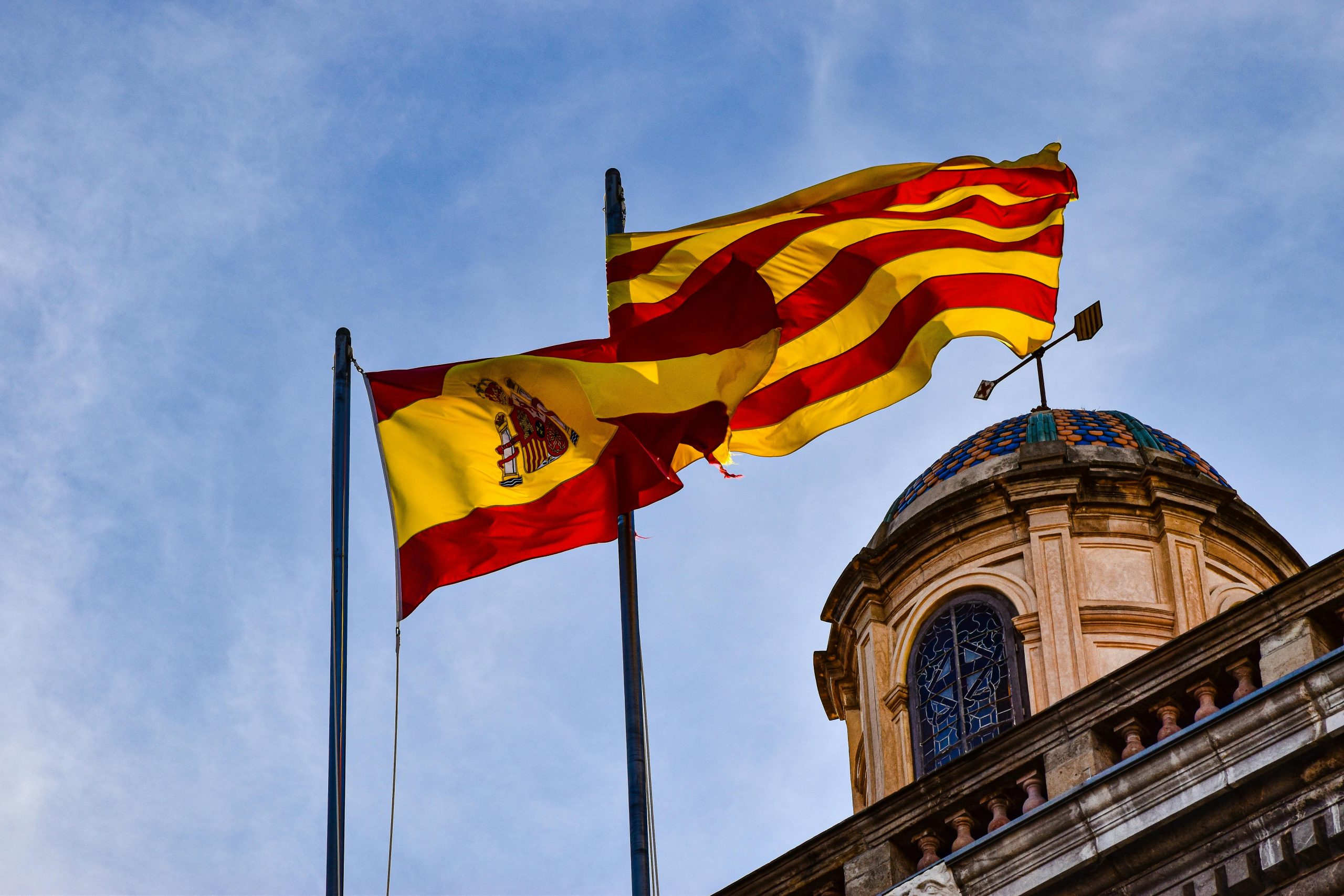Taxes in the Netherlands: Which should I pay?
Learn about the Netherlands' tax system in this guide to Dutch taxation, one of the most efficient and well-structured in Europe.
The tax system in the Netherlands is one of the most structured in Europe, with high rates but a progressive system where the government also offers many deductions and benefits.
In this article, we want to explain what each tax involves, both for individuals and businesses, such as income tax, property tax, consumption tax, and corporate tax. Are you ready to dive into the Dutch tax system?
Taxes for Individuals in the Netherlands
If you’re a student residing in the Netherlands thanks to a study scholarship, freelancer, employee, or a digital nomad working remotely in this country, you’ll have to face certain taxes in the Netherlands.
Individuals are those who have rights and obligations with the law on their own, and do not belong to any association or company. Here are the main taxes:
Income Tax (Income tax)
Income tax applies to all income from work, investments, property, or pensions. Tax residents must declare all their global earnings, and it’s a progressive tax. Here’s how it works:
- Rate of 36.93%: For annual income up to $76,000 (€69,338)
- Rate of 49.50%: For income above $76,000 (€69,338)
- Example: A worker earning $100,000 (€91,235) per year must pay 36.93% on the first $76,000 and 49.50% on the remaining $23,500, with a total of $39,931 (€36,431).
Value Added Tax (VAT-BTW)
Another tax in the Netherlands for individuals is the value-added tax. This indirect tax is paid by consumers when buying goods or services, and is reflected with a rate added to the final price:
- Standard rate 21%: For almost all products such as furniture, clothing, or computers.
- Reduced rate 9%: For food, public transport, and medicines.
- Exemptions: Exports are exempt.
- Example: If you buy furniture worth $1,000 (€912), you will have to pay an extra 21%, $210, and the total price will be $1,125 (€1,026).
Property Tax (Onroerendezaakbelasting)
The municipality of each locality in the country is responsible for collecting one of the taxes in the Netherlands, the property tax from its residents. The percentage is set locally each year and ranges from 0.1% to 0.3% of the property’s assessed value.
- Example: If you buy a property with an assessed value of $400,000 (€364,942) and your municipality applies a 0.2% tax, you’ll need to pay $800 (€729) per year.
Tax on savings and investments
What about your savings? They are also subject to taxes in the Netherlands, so you’ll need to declare both the money you have in the bank and any investments you make.
- Effective rate: From 1.2% to 1.7% on the total value.
- Example: If you have banking assets worth $200,000 (€182,471), you’ll have to pay $3,000 (€2,737) annually at 1.5%.

Taxes for legal entities or businesses in the Netherlands
Legal entities are those legal bodies that form associations, foundations, institutions, or businesses and are liable with the assets of that entity, not their personal ones, as is the case with individuals.
The taxes for legal entities in the Netherlands differ from what we’ve seen in the previous section, regarding the rates applied and the type of tax. Below, we detail the most common taxes in the country:
Corporate Tax (Corporate Income Tax – CIT)
Net profits from a company in the Netherlands must be declared annually. Resident companies pay tax on their global income, while non-resident companies pay only on income earned within the country.
If you’re thinking of starting a business here, you need to know the progressive rates that will apply to you:
- Rate of 19%: For profits up to $465,000 (€424,245).
- Rate of 25.8%: For profits above that amount.
- Example: A company earning $800,000 (€729,884) annually will pay 19% on the first $465,000 and then 25.8% on the remaining $335,000, totalling $174,780 (€159,461).
Value Added Tax (VAT-BTW)
We’ve seen how VAT affects the final consumer, but what about businesses? They are responsible for collecting this tax for the government, which they must return in their tax returns.
Additionally, businesses can deduct the VAT they pay on professional purchases. As we explained earlier, the standard rate is 21% for most products and a reduced rate of 9% for specific services.
For example, a renovation company charging $10,000 (€9,123) for this service would charge the final customer $12,100 (€11,039), adding 21% extra to the invoice.
Social and Labour Contributions
Companies hiring employees, in addition to the gross salary, must reflect social contributions that help finance the country’s social security system: Unemployment, pensions, and state medical insurance.
These salary deductions must be paid monthly to the Dutch Tax Authority (Belastingdienst) and the rates are between 20% and 25% of the gross salary:
- Example: On the payslip of an employee earning $4,000 (€3,649) gross monthly, the company will pay approximately $1,000 (€912) in social contributions.
Business Property Tax (OZB)
Business properties have taxes in the Netherlands based on the type of property, activity, and assessed value, which is determined by the municipality of each area.
For example, if your business has a commercial property in Rotterdam with an assessed value of $600,000 (€547,413), as the owner, you would pay 0.2% of that value, and as a tenant, 0.1%.

How to pay Taxes online in the Netherlands
What’s the easiest way to pay taxes in the Netherlands? Online, as the entire process is digitalised on the official website of the Dutch Tax Authority. To do so, follow these steps:
- Access the official portal www.belastingdienst.nl.
- Identify yourself with your digital signature (DigiD).
- Check your declarations and choose the type of tax.
- Make the payment via bank transfer or credit card.
- Save the payment receipt.
To do this successfully and consult your tax data from any country, get the Holafly monthly subscription plans, which guarantee stable, secure, and fast coverage in over 170 destinations.
The best subscriptions for freelancers, businesses, and frequent travellers who need to manage their taxes from anywhere in the world:
| Subscription | Details | Rate |
|---|---|---|
| 25 GB Plan | Ideal for video calls, collaborative work, and frequent downloads. | $49.90 (€46.20) |
| Unlimited Plan | Best choice if you want total freedom. Perfect for remote workers and heavy internet users. | $64.90 (€59.20) |
Important: If you are a frequent traveler and want to stay connected without worrying about expensive roaming or looking for a new SIM at every destination, Holafly’s subscription plans are for you. With a single eSIM, enjoy internet in more than 170 countries for a fixed price and no surprises on your bill. Travel without limits and connect easily and securely! 🚀🌍

Tax benefits in the Netherlands
The Netherlands is one of the European countries with the most tax benefits for local and foreign entrepreneurs. The government has signed several double taxation treaties and has designed an advanced digital infrastructure to encourage new businesses to come to the country. Here are the main tax advantages:
| Benefit | Target Group | Description |
|---|---|---|
| 30% ruling | Foreign professionals | Exemption of 30% of the gross salary for 5 years. |
| Innovatiebox | Tech companies | Tax rate of 9%, instead of the standard corporate tax rate. |
| Startup Visa | Foreign startups | Administrative and tax facilitation. |
| Dividend exemptions | International holdings | Exempt under treaties or European directives. |
| No capital gains tax on personal assets | Individuals | Profits from the sale of personal assets are not subject to tax. |
Frequently asked questions about Taxes in the Netherlands
The deadline for submitting this tax is between 1st March and 1st May each year. It is done electronically via the official website, or you can hire an advisor to do it for you.
Yes, it is an electronic certificate and is required for any procedure with the Dutch public administration. If you’re a foreign resident, you must first request your citizen number (BSN).
Yes, if you’re a tax resident in the Netherlands, you must declare all your global income, both inside and outside the country. If there is a tax treaty between the Netherlands and your home country, you can avoid double taxation.
The Innovatiebox allows you to tax profits derived from intellectual property at 9% and obtain R&D deductions. There are also exemptions for dividends and tax treaties with more than 90 countries.
As a freelancer in this country, you can deduct some expenses related to your professional activity such as office rent, equipment, transport costs, business trips, software, phone bills, or training courses.
In that case, you will need to file a partial return for that fiscal year from the moment you become a tax resident and obtain your BSN. You must report the income you had before and after your arrival in the country.





 Language
Language 


















 No results found
No results found







